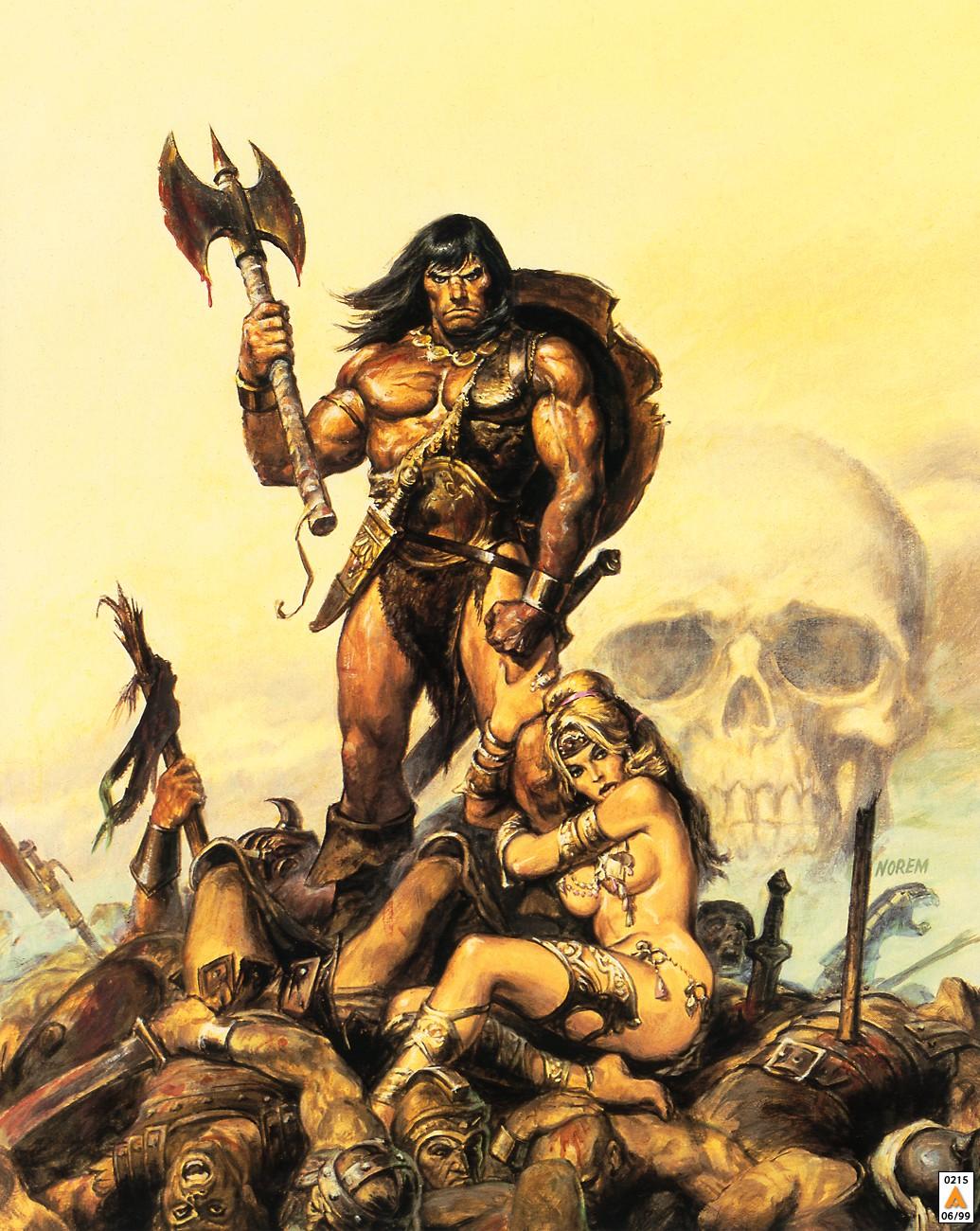Started reading a collection of Robert E. Howard stories and must say, he was better than I’d recalled. I’ve always liked his work, from Conan, Solomon Kane, and Bran Mak Morn and beyond. The variety, depth, and the bravura authority with which he wrote moves him past Lovecraft, in my estimation, and the authenticity he managed to convey moves him past Burroughs.
All wrote in the 1920s and 1930s C.E.
REH committed gun suicide in his car over word his mother was dying in 1936 at age 30. HPL died in 1937 at age 46 of stomach cancer. ERB died in 1950 at the age of 74 of a heart attack, to be buried, where else, in Tarzana, CA, the town named for his creation.
Their influence is stronger than ever.
Pulp fiction told STORIES, primarily.
ERB signed his first finished, submitted ms ‘A Normal Bean’, intending to assure the publisher he was a regular guy despite how wild a fantasy he’d written in A Princess of Mars. The publishers mistook his jest as the name A. Norman Bean, but ERB quickly reverted to his own very specific, fully resonant name.
Point being, he write for pulp editors, who above all wanted STORYTELLERS.
Tall tales, wild fantasies, bald-faced exaggerated lies, it made no difference as long as you spun a good yarn. That phrase refers to keeping a narrative thread going to draw readers through the pages. Pulp fiction relies on narrow escapes, breathless chases, and dire danger. It’s all about cliffhangers. Pulp storylines are fraught. Pulp presentation is suspenseful and atmospheric. Reading pulp is exciting; never a dull moment. There term ‘action-packed’ is a Pulp descriptive.
Heroes and Villains added an important element: stark conflict. The modern usage of calling megalomaniacal despots Bond Villains shows Ian Fleming had the opponents of 007 steeped in Pulp tradition. Consider Fu Manchu, Sax Rohmer’s consummate global threat; now think of Dr. No.
Interestingly, REH in correspondence cited Rudyard Kipling, Talbot Mundy, (whose work was refreshingly anti-colonial and inclusive toward Asian belief systems), and Jack London, which meant his fiction, while sprinkled with the 1920s East Texas sexism, racism, and empire arrogance, aren’t dated so much as quaint.
Even better, although obvious if repressed latent gay aspects roil just beneath the surface, there are clear, well-drawn, strong and intelligent women in REH’s fiction.
His storytelling is vigorous and sure-footed. He deploys research deftly. His characters act rationally but not omnisciently. REH knew how to plant and later reveal telling details. His compelling tales often pivot on surprises stemming from widened context or connecting earlier dots.
L. Sprague de Camp, in his biographical critiques of REH found in the introduction to Conan Of the Isles, (a pastiche of Howard at novel length de Camp and Lin Carter wrote), as cited also on the REH Wiki by the way, (yes, I’ve read both), praised REH’s storytelling as vivid, gripping, and unmatched for headlong action. Of storytelling itself, he wrote: “If the writer has this quality, we can forgive many other faults; if not, no other virtue can make up for the lack”
My paraphrase: Storytelling lets many literary flaws slide but without it, the flaws win.
Too many current writers forget this to their work’s detriment and to their readers’ loss. Literary fiction eschews plot, for example. To the academics, storytelling itself is suspect, a mark of weakness.
By making prose an artifact to be sniffed at like a stature of manure, plucking out hay straws to examine, finding a corn kernel here or there to effuse over — by making prose an artifact, academics remove the one aspect of fiction that lasts longest and best: story.
A good story told well becomes part of, and perhaps stemmed from, was condensed from, humanity itself. It’s a part of us all. We know it when we hear it, we see it when we sing it, we tell it when we need it.
This is the Pulp tradition’s legacy. It is to be embraced.
Telling good stories well is my goal, using my own voice. All else is pastiche or putzing around.
/// /// ///

